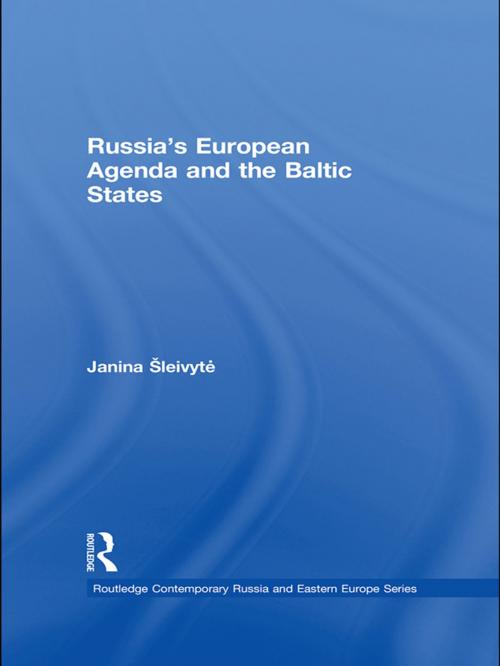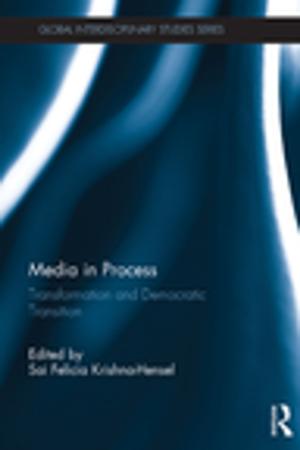Russia's European Agenda and the Baltic States
Nonfiction, Social & Cultural Studies, Social Science, Cultural Studies, Ethnic Studies, Political Science| Author: | Janina Šleivyte | ISBN: | 9781135181109 |
| Publisher: | Taylor and Francis | Publication: | December 16, 2009 |
| Imprint: | Routledge | Language: | English |
| Author: | Janina Šleivyte |
| ISBN: | 9781135181109 |
| Publisher: | Taylor and Francis |
| Publication: | December 16, 2009 |
| Imprint: | Routledge |
| Language: | English |
Russian foreign policy has become an increasing concern in 21st century, together with Russia’s relations with its former Soviet neighbours - but its relations with the Baltic States are particularly sensitive, given the Baltic membership of NATO and the EU and Russia’s increasingly fractious relations with those institutions. This book discusses the development of Russia’s approach to the new security architecture in Europe and assesses the prospects for a more active engagement of Russia in the Baltic Sea region and Europe as a whole. The book considers the full range of issues affecting security, including energy, economic relations; the special position of Russia’s Kaliningrad enclave; and Russia’s special interest in the Russian minorities in the former Soviet Baltic states. The evolution of Russian-Baltic relations from 1990-2008 is set in the more general context of Russia’s European agenda, looking into the role and place of the Baltic States in this agenda. It provides a comparative analysis of the European agenda in of Russia’s foreign policy under Boris Yeltsin, Vladimir Putin and Dmitry Medvedev, and concludes that, despite the replacement of the former Cold War stand-off with a more positive climate and a complicated array of bilateral and multilateral contacts much more still needs to be done to engage Russia fully with the new Europe
Russian foreign policy has become an increasing concern in 21st century, together with Russia’s relations with its former Soviet neighbours - but its relations with the Baltic States are particularly sensitive, given the Baltic membership of NATO and the EU and Russia’s increasingly fractious relations with those institutions. This book discusses the development of Russia’s approach to the new security architecture in Europe and assesses the prospects for a more active engagement of Russia in the Baltic Sea region and Europe as a whole. The book considers the full range of issues affecting security, including energy, economic relations; the special position of Russia’s Kaliningrad enclave; and Russia’s special interest in the Russian minorities in the former Soviet Baltic states. The evolution of Russian-Baltic relations from 1990-2008 is set in the more general context of Russia’s European agenda, looking into the role and place of the Baltic States in this agenda. It provides a comparative analysis of the European agenda in of Russia’s foreign policy under Boris Yeltsin, Vladimir Putin and Dmitry Medvedev, and concludes that, despite the replacement of the former Cold War stand-off with a more positive climate and a complicated array of bilateral and multilateral contacts much more still needs to be done to engage Russia fully with the new Europe















